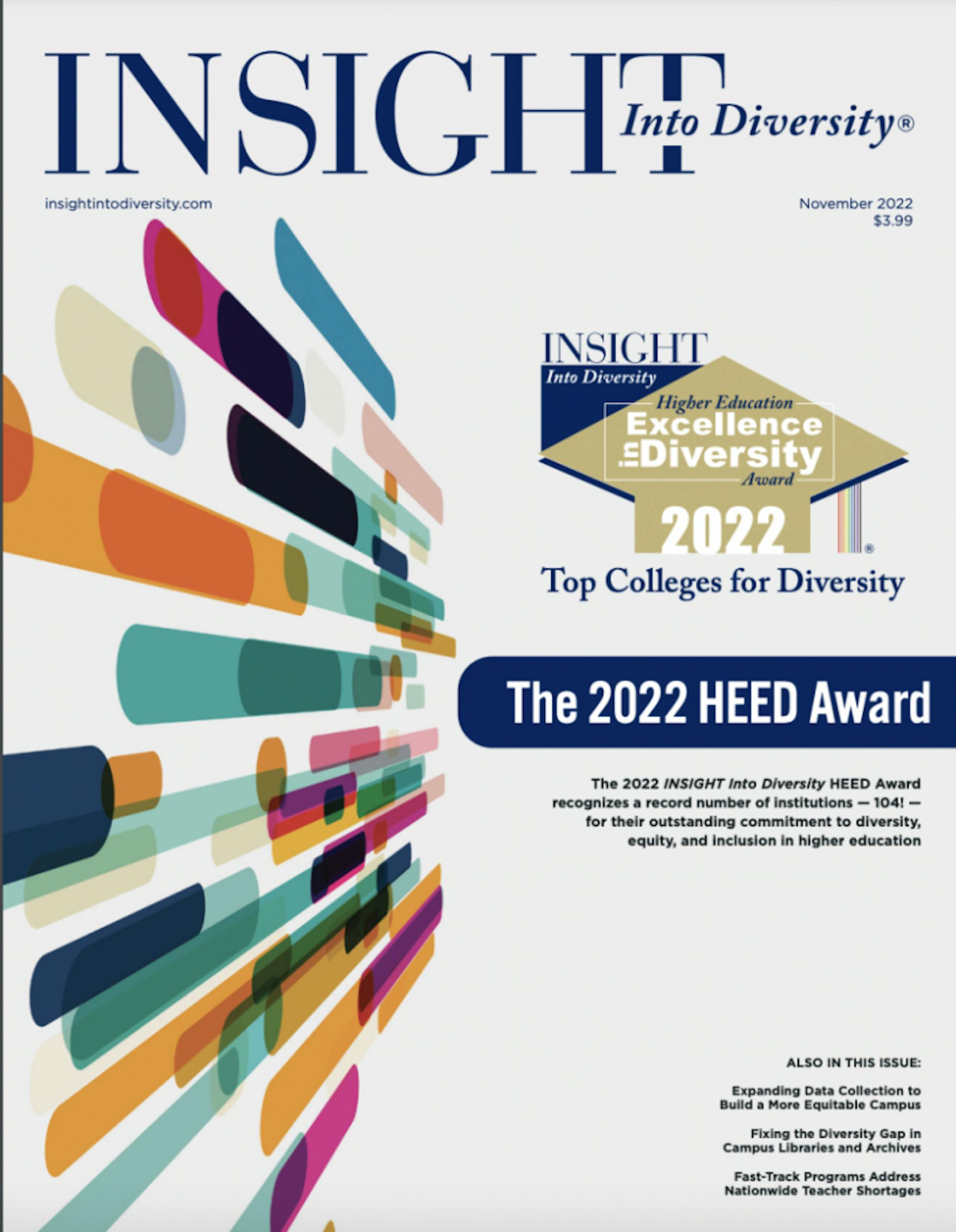Emory University is one of 103 U.S. colleges and universities to be named a recipient of the 2022 Higher Education Excellence in Diversity (HEED) award. The “INSIGHT into Diversity”magazine, the oldest and largest diversity magazine in higher education, awards the honor annually to colleges and universities that demonstrate a commitment to diversity and inclusion. This year’s honorees are featured in the magazine’s November 2022 issue.
This award follows a broad spectrum of diversity and inclusion efforts undertaken by the Office of Diversity and Inclusion. Some of the student-focused initiatives include the pre-orientation STEM Pathways program, which supports students in STEM fields who are first-generation or belong to underrepresented identity groups. Students in this program are paired with the first-year STEM Partners program taught by faculty from underrepresented groups.
Emory also has communities and programs across campus for underrepresented groups, such as the 1915 Scholars, which supports first-generation college students, and the Mariposa Scholars, which supports undocumented students.
Along with student initiatives, the University has also launched employee-focused programs. The magazine mentions some of these initiatives, such as the Emory Black EmployeeNetwork and the Emory Pride EmployeeNetwork. These resource groups offer networking and community engagement opportunities for marginalized and under-represented employees . The magazine also references the Arts and Social Justice Fellows Program, which connects Emory faculty with Atlanta artists in an attempt to “exchange ideas about the arts and social justice to help students translate learning into creative activism for racial justice.”

Emory has taken great care in creating these programs and measuring their efficacy, Vice Provost for Diversity and Inclusion Carol Henderson said in an email to the Wheel.
"Emory has consistently done the work of diversity, equity, and inclusion (DEI) to some degree in various pockets of the community,” Henderson wrote. “What our office has done is bring all those collaborations together under one department that advances the work in a coordinated fashion."
Each of Emory’s nine schools have an individual DEI department which ties into the University-wide DEI department, Henderson noted.
However, she said that this can create coordination problems, as it is hard to know all of the DEI initiatives in each school.
“While our HEED application highlighted the work of many key campus stakeholders and civic and community partners, I am sure there are some efforts we were unable to capture in that process," Henderson said.
Data collection and assessment was vital to the creation of DEI programs, Henderson added.
Assistant Vice Provost for Institutional Research and Decision Support Justin Shepherd explained that the University’s excellence in DEI comes from continuously evaluating the success of its programs.
“The program directors are particularly skilled at understanding the intersection of all aspects of student experiences and engagement — everything including academic affairs, campus life, housing, dining and all things related to student flourishing,” Shepherd noted.
The University has also recently undertaken DEI initiatives directly in academia. In fall 2021, the Emory College of Arts and Sciences implemented the Race and Ethnicity general education requirement. Many First Year Writing courses also relate to diversity and inclusion and cover topics such as Native American literature and struggles for social justice. Henderson said that the University strives to educate students of various cultures represented in the Emory community.
“Many schools and departments have or are developing co curricular and academic programming that helps students and scholars at both the undergraduate, graduate and professional levels strengthen intercultural fluencies within their disciplines and within their circle of influence,” Henderson said. “I think it is wonderful that there is a growing awareness that we must prepare our Emory scholars to impact, engage, serve and innovate in an increasingly diverse and intersectionality vibrant world.”
Henderson added that the change was intentional and a way for students to be exposed to intercultural and cross-cultural fluency.
While most of the programs and initiatives developed by the DEI Office are geared toward dismantling race, gender and monetary inequities, there are also some efforts being made to make our student body more neurodiverse, Henderson noted. This includes co-sponsoring programming with the Emory Autism Center and highlighting the accomplishments of neurodiverse individuals.
“Our April DEI newsletter each year focuses on this community, and the Department of Accessibility Services, in the Office of Institutional Compliance and Equity, serves as a ready advocate for both students, faculty and staff who are neurodiverse,” Henderson added. “As a community, we are growing more aware.”





